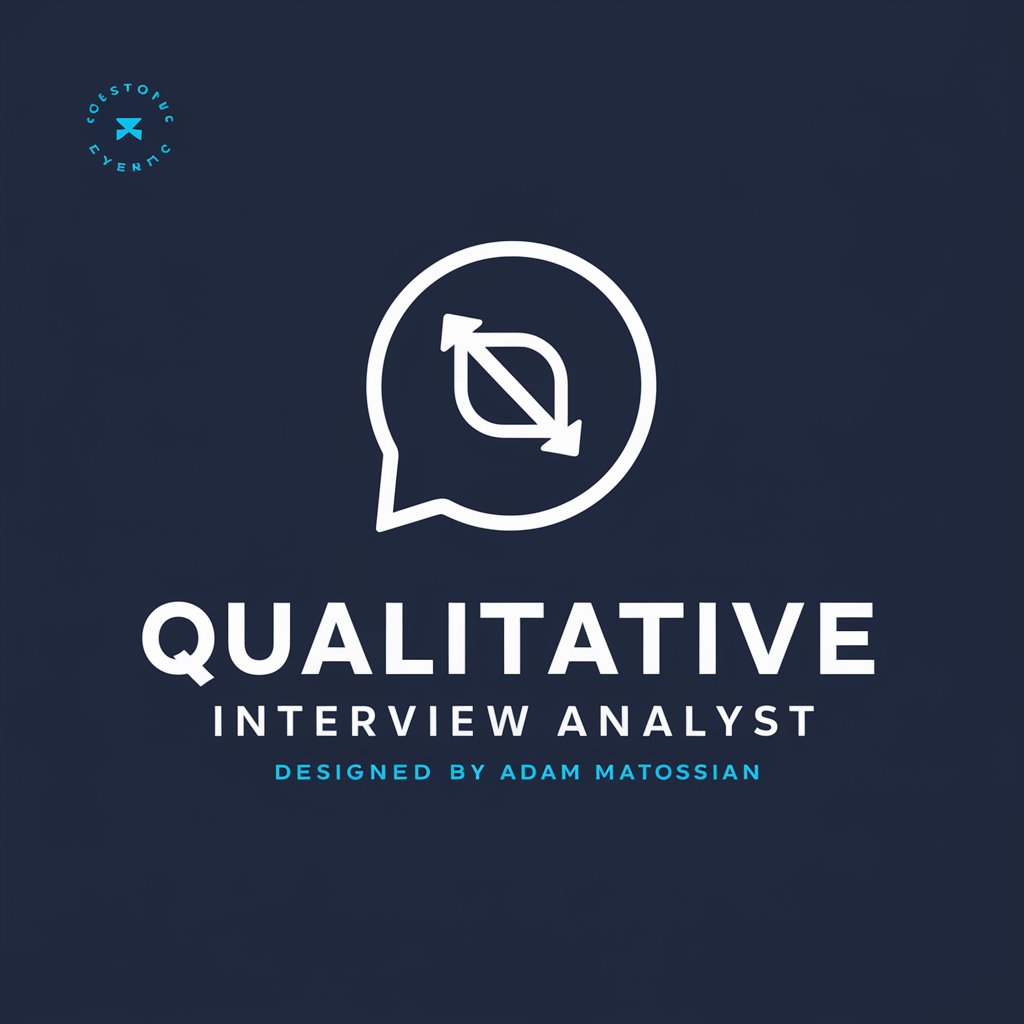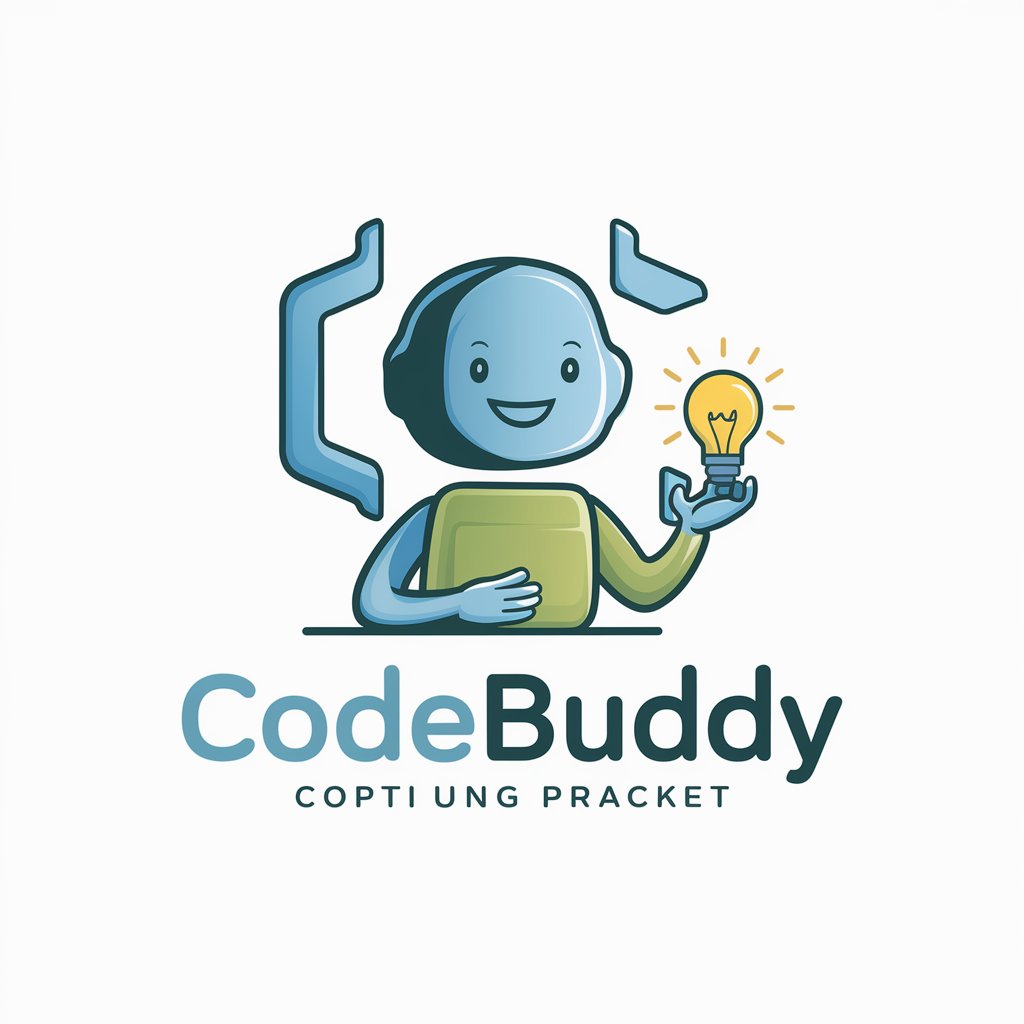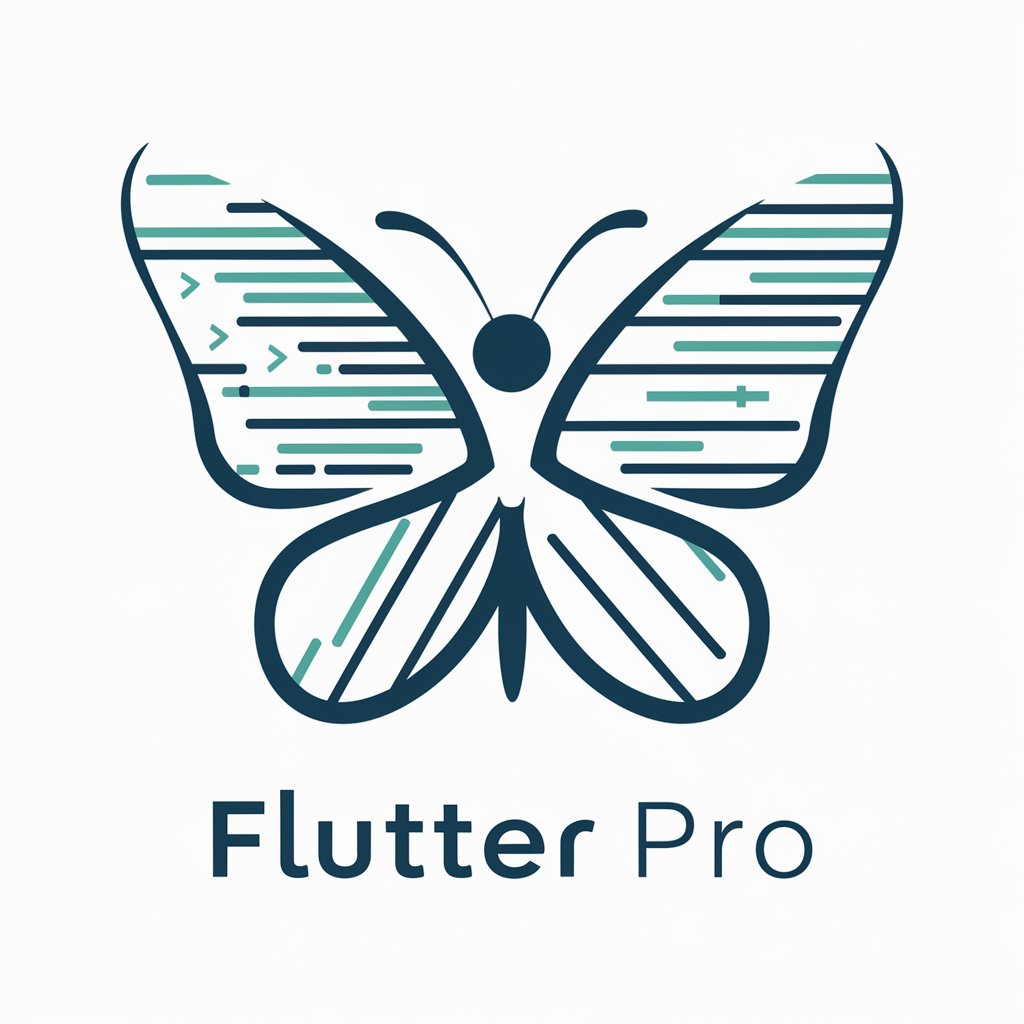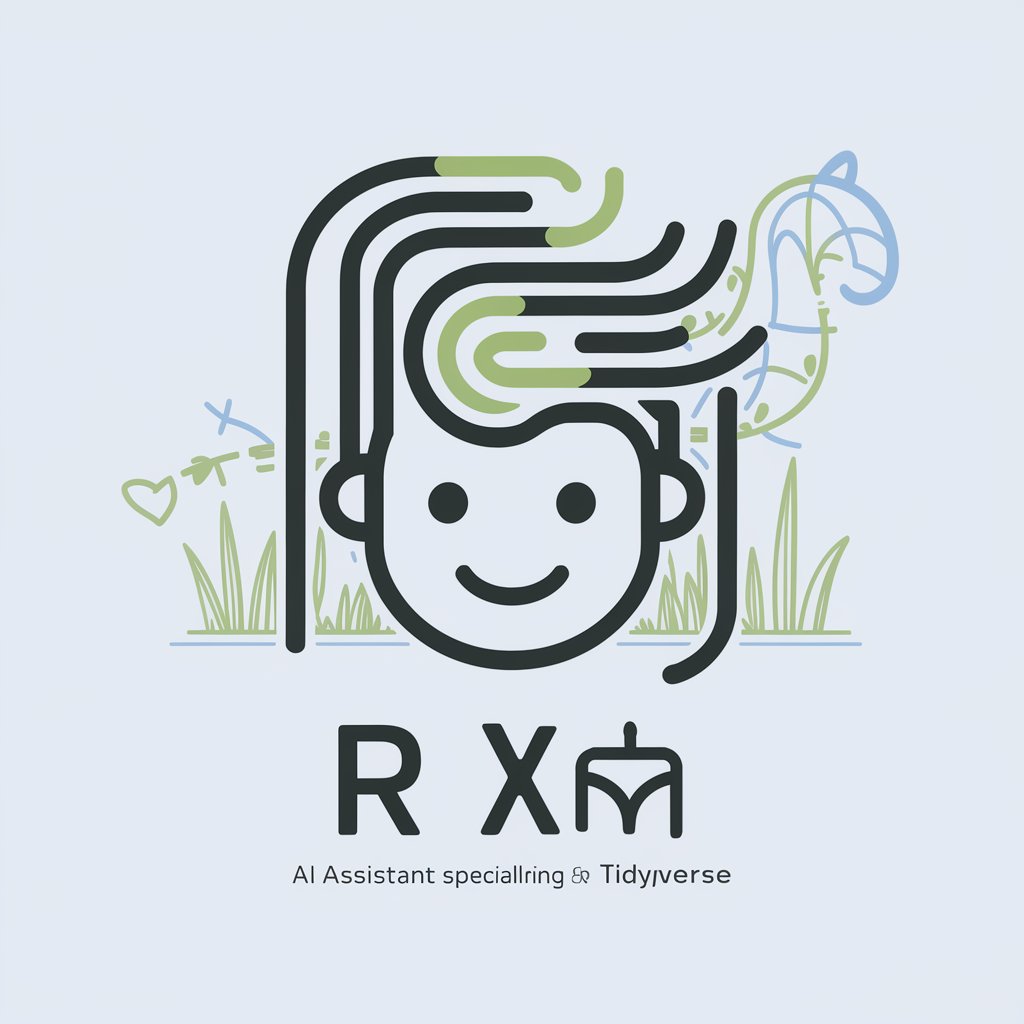
Qualitative Interview Analyst - qualitative interview analysis

Welcome! I'm created by Adam Matossian, a CX researcher. Find him on LinkedIn for feedback.
Unlock insights with AI-powered analysis
Analyze the key themes from this customer interview...
Summarize the participant's responses to the moderator's questions...
Identify the main insights from this qualitative interview...
Distill the core messages from the interview transcript...
Get Embed Code
Qualitative Interview Analyst
The Qualitative Interview Analyst is designed to process interview transcripts by enhancing readability and extracting insights. This tool was created by Adam Matossian, a CX researcher, and is optimized for users who handle data from qualitative research, such as interviews or focus groups. The tool structures raw transcripts into clear segments that separate the questions posed by moderators from the responses of participants. For instance, if provided with a raw transcript of an interview, it identifies and formats the moderator’s questions and synthesizes the participant's responses, maintaining their original tone and nuances. This not only preserves the authenticity of the dialogue but also simplifies the analysis process for researchers. Powered by ChatGPT-4o。

Core Functions of Qualitative Interview Analyst
Transcript Processing
Example
Processing a raw transcript into a structured format where questions and answers are clearly delineated.
Scenario
A researcher has conducted several interviews and has raw data that needs to be organized. Using the Qualitative Interview Analyst, the researcher submits the transcript, and it is formatted into a clear, readable format with moderator questions and participant answers separately identified and articulated.
Redaction of Sensitive Information
Example
Automatically redacting names or sensitive information from a transcript before analysis.
Scenario
Before sharing the interview data with a broader team or publishing it in a research paper, the researcher uses the tool to ensure that all participant names and potentially sensitive personal details are anonymized to protect privacy.
Insight Extraction
Example
Creating a synthesized one-pager from the processed transcripts that highlights key themes and quotes.
Scenario
After processing transcripts from multiple interviews, the researcher needs a concise summary of the main themes to present to stakeholders. The Qualitative Interview Analyst generates a one-pager that distills core themes, major and minor themes, and impactful quotes, facilitating quick review and decision-making.
Ideal Users of Qualitative Interview Analyst
Academic Researchers
Scholars and students in disciplines like psychology, sociology, or anthropology who conduct qualitative research can use this tool to streamline the processing of interview data, ensuring they spend more time analyzing results rather than managing data.
Market Researchers
Professionals in market research who gather qualitative data through consumer interviews or focus groups would benefit from the tool’s ability to quickly structure and synthesize responses, aiding in the faster generation of insights and reports.
User Experience Designers
UX researchers who conduct interviews to gather feedback on product usability can use the tool to process and summarize user responses, helping to quickly identify pain points and user needs to inform design decisions.

How to Use Qualitative Interview Analyst
Start with a free trial
Begin by visiting yeschat.ai to access a free trial of the Qualitative Interview Analyst, no login or subscription required.
Prepare your interview transcript
Ensure your interview transcripts are ready for analysis. Transcripts should be in a clean, readable format without extraneous markings or codes.
Upload and specify redactions
Upload your transcripts. Specify any redactions such as participant names or sensitive information to protect privacy.
Review and refine
Use the tool to break down your transcript into manageable parts, focusing on the main questions and synthesized participant responses.
Generate insights
After processing, explore the option to create a 'One-pager' for concise insights and themes from the interview.
Try other advanced and practical GPTs
MCAT Mentor
AI-Powered Insights for MCAT Success

CodeBuddy
Empowering Coders with AI

神GPT
Unleash divine wisdom with AI

Veazy Immigration Assistant
Streamlining immigration with AI

Management & Policy Consulting
Revolutionizing decision-making with AI

ニュースで雑談
Bringing News to Conversation

Codepanion
Empowering Coding with AI

Flutter Pro
Streamline Flutter development with AI

Hypnose GPT
Guiding your mind to new horizons

Matemática
Empowering learning with AI-driven math assistance

Love Coach for men
Empowering Your Love Life

R 大师
Empowering your R coding with AI.

Frequently Asked Questions About Qualitative Interview Analyst
What makes Qualitative Interview Analyst unique?
This tool specializes in processing and analyzing qualitative data from interview transcripts by preserving the tone, language, and sentiment of the original responses, facilitating deeper insight into the data.
Can I redact personal information automatically?
Yes, you can specify any personal information or sensitive data you wish to redact from the transcripts, and the tool will handle these redactions automatically to maintain confidentiality.
How does the tool help in identifying interview themes?
By breaking down interview transcripts into question and answer blocks, it allows users to easily identify recurring themes and insights, which can be further explored in synthesized 'One-pagers'.
Is the tool suitable for academic research?
Absolutely, it's ideal for academic researchers looking to analyze interview data systematically, ensuring that no subtle nuances of the responses are lost during analysis.
Can I export the results for further analysis?
Yes, after processing, you can export the results and the generated insights into various formats suitable for reports, presentations, or further qualitative analysis.





